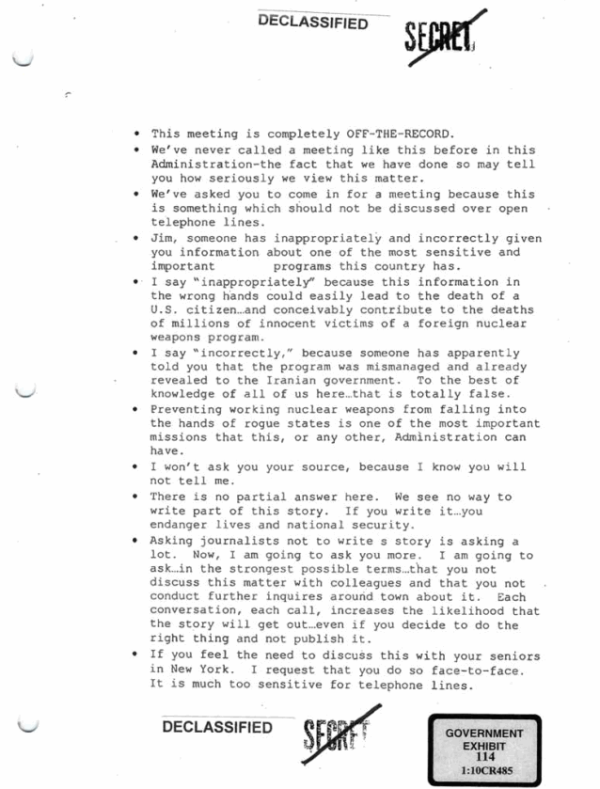THE INTERCEPT: Bundled against the freezing wind, my lawyers and I were about to reach the courthouse door when two news photographers launched into a perp-walk shoot. As a reporter, I had witnessed this classic scene dozens of times, watching in bemusement from the sidelines while frenetic photographers and TV crews did their business. I never thought I would be the perp, facing those whirring cameras.
As I walked past the photographers into the courthouse that morning in January 2015, I saw a group of reporters, some of whom I knew personally. They were here to cover my case, and now they were waiting and watching me. I felt isolated and alone.
My lawyers and I took over a cramped conference room just outside the courtroom of U.S. District Judge Leonie Brinkema, where we waited for her to begin the pretrial hearing that would determine my fate. My lawyers had been working with me on this case for so many years that they now felt more like friends. We often engaged in gallows humor about what it was going to be like for me once I went to jail. But they had used all their skills to make sure that didn’t happen and had even managed to keep me out of a courtroom and away from any questioning by federal prosecutors.
Until now.
My case was part of a broader crackdown on reporters and whistleblowers that had begun during the presidency of George W. Bush and continued far more aggressively under the Obama administration, which had already prosecuted more leak cases than all previous administrations combined. Obama officials seemed determined to use criminal leak investigations to limit reporting on national security. But the crackdown on leaks only applied to low-level dissenters; top officials caught up in leak investigations, like former CIA Director David Petraeus, were still treated with kid gloves. […]
In another recent incident that gave me chilling insight into the power of government surveillance, I met with a sensitive and well-placed source through an intermediary. After the meeting, which occurred a few years ago in Europe, I began to do research on the source. About an hour later, I got a call from the intermediary, who said, “Stop Googling his name.”
In January 2008, after I received the first subpoena related to the CIA-Iran story in “State of War,” a series of procedural motions prolonged the fight over whether I would be forced to testify before the grand jury until after the 2008 presidential election.
I thought Barack Obama’s election would end the case. U.S. District Judge Leonie Brinkema seemed to think so, too. In July 2009, she issued a brief ruling noting that the grand jury in the case had expired, meaning my subpoena was no longer valid. I was surprised when Obama’s Justice Department quickly told Brinkema they wanted to renew the subpoena.
In hindsight, this was one of the earliest signals that Obama was determined to extend and even expand many of Bush’s national security policies, including a crackdown on whistleblowers and the press. Ignoring the possible consequences to American democracy, the Obama administration began aggressively conducting surveillance of the digital communications of journalists and potential sources, leading to more leak prosecutions than all previous administrations combined. MORE

